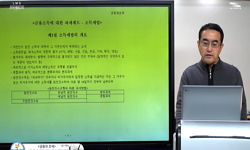[Purpose] This study examines the experience of virtual asset tax and accounting treatments in the United States (US) and South Korea and explores their implications for virtual asset management in China.<BR/>[Methodology] This paper utilizes th...
http://chineseinput.net/에서 pinyin(병음)방식으로 중국어를 변환할 수 있습니다.
변환된 중국어를 복사하여 사용하시면 됩니다.
- 中文 을 입력하시려면 zhongwen을 입력하시고 space를누르시면됩니다.
- 北京 을 입력하시려면 beijing을 입력하시고 space를 누르시면 됩니다.

Virtual Asset Taxation and Accounting Treatment in a Global Perspective: Insights for China from the Experiences of the United States and South Korea
한글로보기https://www.riss.kr/link?id=A109608185
- 저자
- 발행기관
- 학술지명
- 권호사항
-
발행연도
2025
-
작성언어
English
-
주제어
Virtual Assets ; Tax System ; Accounting Treatment ; 가상 자산 ; 조세 제도 ; 회계 제도
-
KDC
32
-
등재정보
KCI등재
-
자료형태
학술저널
- 발행기관 URL
-
수록면
111-132(22쪽)
- 제공처
-
0
상세조회 -
0
다운로드
부가정보
다국어 초록 (Multilingual Abstract)
[Purpose] This study examines the experience of virtual asset tax and accounting treatments in the United States (US) and South Korea and explores their implications for virtual asset management in China.<BR/>[Methodology] This paper utilizes the literature analysis method to sort out the extant relevant studies, and then combines it with the comparative research method.<BR/>[Findings] Research indicates that the US focuses on treating virtual assets as property and levying taxes. Simultaneously, South Korea has clarified the accounting treatment of virtual assets while gradually implementing the transaction tax on virtual assets.<BR/>[Implications] The experiences of the US and South Korea provide valuable references for China, particularly in terms of virtual asset taxation, accounting treatment, and transaction regulation.
동일학술지(권/호) 다른 논문
-
가상 인간 앵커의 AI 라이브 판매가 구매 의사에 미치는 영향 요인 연구: 차세대 소비그룹을 예로 들어
- 한국경영교육학회
- 장문기(Zhang, Wen-Qi)
- 2025
- KCI등재
-
공기업의 구분회계제도 도입이 경영실적평가 계량지표 결과에 미치는 영향
- 한국경영교육학회
- 김두혁(Kim, Du-Hyeok)
- 2025
- KCI등재
-
금융 기초 교육에서 문제중심학습(PBL) 적용 사례 및 효과에 관한 연구
- 한국경영교육학회
- 나재석(Na, Jaeseog)
- 2025
- KCI등재
-
온라인 패션 리뷰 데이터를 활용한 속성 기반 감성 분석
- 한국경영교육학회
- 전수현(Jeon, Su Hyeon)
- 2025
- KCI등재




 KCI
KCI DBpia
DBpia





